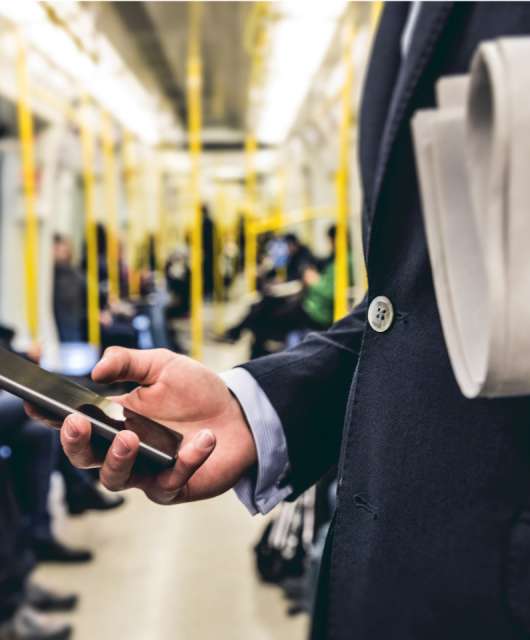The holiday season is upon us, and with it comes the annual tradition of finding the perfect gifts for our loved ones. Whether you’re looking for cutting-edge technology, innovative gadgets, or practical accessories to enhance the lives of those you care about, this year’s Christmas gift options are packed with exciting new devices and must-have protection accessories. In this comprehensive guide, we will explore some of the most popular and high-quality gift ideas that are sure to impress and provide long-lasting benefits.
High-Tech Gadgets That Make Perfect Christmas Gifts
When it comes to Christmas gifts, nothing captures the attention more than the latest and greatest in technology. Here are some top picks for high-tech gadgets that are sure to make a splash under the tree:
Smartphones with Advanced Features
The smartphone market continues to evolve, and gifting a new phone is always a sure bet. This year, look for devices with upgraded cameras, larger screens, and better battery life. Smartphones are at the forefront of cutting-edge technology, offering features such as 5G connectivity, enhanced security, and AI-driven performance improvements. They not only keep your loved ones connected but also serve as powerful tools for work, entertainment, and photography.
Smart Speakers and Home Assistants
The popularity of voice-controlled smart speakers has grown exponentially. They are fantastic Christmas gifts, allowing users to control everything from lighting to music with just their voice. These devices integrate seamlessly with smart home ecosystems, making them an essential addition to any modern home.
Wearables for Health and Fitness
Fitness trackers and smartwatches have become a must-have accessory for many people. Most popular choices offer not only fitness tracking features but also health monitoring capabilities, such as heart rate tracking, sleep analysis, and even ECG readings. These devices can be the perfect gift for health-conscious individuals or those looking to improve their fitness journey.
Protection Accessories to Keep Devices Safe
As we invest more in high-tech gadgets, the need for protection accessories has never been greater. Whether it’s for a smartphone, laptop, or tablet, protection accessories ensure that your devices remain in top condition for longer periods. Here are some must-have protection accessories:
Phone Cases and Screen Protectors
A phone case is an essential accessory for anyone looking to protect their investment. With countless designs and materials available, you can find something that suits both style and function. Pair your phone case with a screen protector to shield the device from scratches and cracks.
Laptop and Tablet Protection
Laptops and tablets are often on the move, making them susceptible to damage. Invest in a laptop sleeve or tablet case that provides additional cushioning and prevents any accidental drops. Look for cases that are water-resistant, shockproof, and designed to keep your tech safe from scratches and dents.
Portable Power Banks
No one wants their devices to run out of power at the most inconvenient time. A portable power bank is a practical and thoughtful gift for anyone who uses their phone or tablet regularly. These devices offer on-the-go charging, ensuring that you never have to worry about finding an outlet. Leading brands provide power banks with multiple ports and high-capacity batteries, making them a perfect companion for travel or long days at work.
Cybersecurity Tools for Peace of Mind
In an increasingly digital world, safeguarding personal data is crucial. This Christmas, give the gift of enhanced cybersecurity with tools and accessories designed to protect online privacy and prevent data breaches. One such tool that offers exceptional value is Panda Dome.
Panda Dome for Comprehensive Digital Protection
Panda Dome is a cybersecurity software that offers top-tier protection against viruses, malware, and other online threats. With advanced features like real-time protection, Wi-Fi protection, and identity theft prevention, Panda Dome ensures that all of your digital devices remain safe and secure. Whether you’re browsing the internet, shopping online, or managing sensitive information, Panda Dome provides peace of mind, making it an essential gift for anyone concerned about their online security.
Tech Gifts for the Home
Technology isn’t just for personal gadgets – it’s also transforming the way we manage and enjoy our homes. Here are some standout tech gifts that will elevate any living space:
Smart Home Devices
Smart thermostats, lights, and security cameras have revolutionized home management. In one hand smart thermostats and smart lighting systems provide convenience, energy efficiency, and ease of use. On the other hand, smart security cameras offer peace of mind by allowing users to monitor their property remotely.
Streaming Devices
For those who love to stream movies, TV shows, and music, a streaming device is an excellent gift choice. These devices make it easy to access a wide range of streaming platforms, offering high-definition visuals and seamless integration with other smart devices to enhance the home entertainment experience.
Personalized and Thoughtful Tech Accessories
If you’re looking for a more personalized gift, consider giving a tech accessory that can be customized. Many companies offer customizable options that allow you to add a personal touch to gadgets like headphones, phone cases, or even laptop sleeves. Personalized Bluetooth speakers, wireless earbuds, and charging stations make excellent gifts for tech enthusiasts who appreciate functionality and style.
Sustainable Tech Gifts
As the world becomes more environmentally conscious, eco-friendly tech gifts are gaining popularity. Opt for products that are made from sustainable materials or designed to reduce energy consumption. Solar-powered chargers, biodegradable phone cases, and energy-efficient smart devices are great choices for those looking to reduce their environmental footprint while still enjoying cutting-edge technology.
Conclusion: The Best Gifts for the Tech Lover in Your Life
Choosing the perfect gift for Christmas can be challenging, but when it comes to tech enthusiasts, there’s an abundance of exciting new devices and protection accessories to choose from. Whether you’re gifting the latest smartphone, a high-tech wearable, or a suite of protective accessories like phone cases and security software, these Christmas gifts are sure to delight and impress. Among these, Panda Dome stands out as a must-have cybersecurity tool that guarantees peace of mind and digital protection for anyone in the modern age.
Remember, the best gifts are those that combine practicality with innovation, and the world of technology offers endless possibilities for thoughtful and useful presents this holiday season. So, whether you’re shopping for gadgets, accessories, or digital security tools, you’re sure to find the perfect Christmas gifts to make this holiday special.






